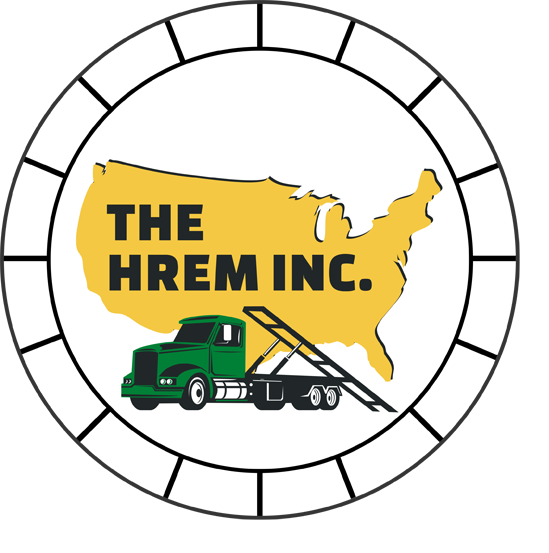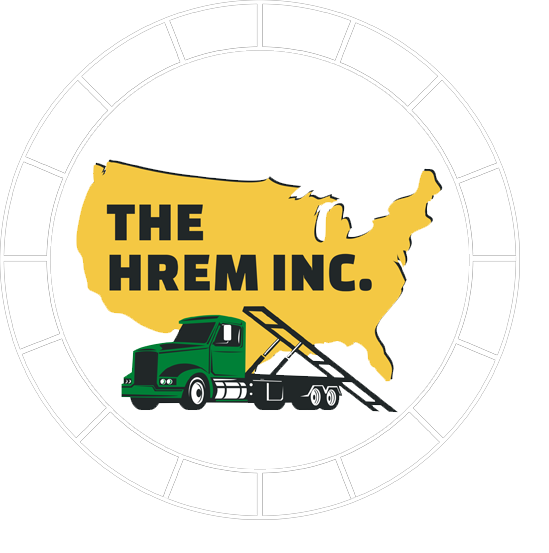
Top 5 Innovations in Roll-Off Truck Manufacturing in 2024
Roll-off trucks have long been essential in waste management, construction, and various industrial sectors. As the demand for more efficient, reliable, and environmentally friendly vehicles grows, manufacturers are continually innovating to meet the evolving needs of businesses worldwide. In 2024, several groundbreaking advancements have taken center stage, setting new standards in roll-off truck manufacturing. This article explores the top 5 innovations in roll-off truck manufacturing in 2024 that are transforming the industry.
1. Electric-Powered Roll-Off Trucks: A Green Revolution
The Shift to Electric-Powered Vehicles
As environmental concerns continue to shape industries, the transition to electric-powered vehicles (EVs) has become a top priority for manufacturers. Roll-off trucks, known for their heavy-duty capabilities, are now part of this green revolution. In 2024, electric-powered roll-off trucks have made significant strides, offering a viable alternative to traditional diesel-powered models.
Benefits of Electric-Powered Roll-Off Trucks
- Reduced Emissions: Electric roll-off trucks produce zero tailpipe emissions, significantly reducing their carbon footprint. This innovation aligns with global efforts to combat climate change and adhere to stricter emissions regulations.
- Lower Operating Costs: With fewer moving parts and no need for fuel, electric trucks offer lower maintenance and operating costs over time. This translates to substantial savings for businesses.
- Quieter Operations: Electric roll-off trucks operate much more quietly than their diesel counterparts, reducing noise pollution in urban areas and construction sites.
- Regenerative Braking Systems: These systems capture energy during braking, which can be reused to power the vehicle, further enhancing efficiency.
Challenges and Future Prospects
While electric roll-off trucks offer numerous advantages, they also present challenges, particularly in terms of battery life and charging infrastructure. However, ongoing advancements in battery technology and the expansion of charging networks are expected to address these issues, making electric roll-off trucks an increasingly attractive option for businesses.
2. Advanced Telematics and Fleet Management Systems
The Rise of Smart Fleet Management
In 2024, the integration of advanced telematics and fleet management systems has revolutionized how roll-off trucks are managed and operated. These systems use GPS, sensors, and real-time data analytics to provide fleet managers with unprecedented control and insights.
Key Features of Advanced Telematics Systems
- Real-Time Tracking: Fleet managers can monitor the location, speed, and route of each roll-off truck in real-time, improving operational efficiency and reducing fuel consumption.
- Predictive Maintenance: Sensors installed on the trucks can detect potential issues before they become major problems, enabling predictive maintenance. This reduces downtime and extends the lifespan of the vehicles.
- Driver Behavior Monitoring: Telematics systems can track driver behavior, such as harsh braking, speeding, and idling. This data helps improve driver training and safety protocols, reducing the risk of accidents.
- Optimized Routing: By analyzing traffic patterns and road conditions, these systems can optimize routes for roll-off trucks, reducing travel time and fuel consumption.
The Impact on the Industry
The adoption of advanced telematics and fleet management systems has led to significant cost savings and operational efficiencies. Businesses can now make data-driven decisions that improve the overall performance of their roll-off truck fleets, resulting in higher productivity and profitability.
3. Autonomous Roll-Off Trucks: The Future of Waste Management
The Evolution of Autonomous Vehicles
Autonomous vehicles have been a topic of interest for several years, and in 2024, they have finally made their mark in the roll-off truck industry. Autonomous roll-off trucks are equipped with cutting-edge sensors, cameras, and artificial intelligence (AI) systems that allow them to operate with minimal human intervention.
How Autonomous Roll-Off Trucks Work
- Advanced Sensor Systems: These trucks are equipped with a range of sensors, including LiDAR, radar, and cameras, that provide a 360-degree view of the surroundings. This allows the truck to navigate complex environments safely.
- AI-Powered Decision Making: AI algorithms process data from the sensors in real-time, enabling the truck to make decisions, such as adjusting speed, avoiding obstacles, and determining the most efficient routes.
- Remote Monitoring and Control: While the trucks operate autonomously, human operators can monitor and intervene remotely if necessary, ensuring safety and reliability.
Benefits and Challenges of Autonomous Roll-Off Trucks
- Increased Efficiency: Autonomous roll-off trucks can operate 24/7 without the need for breaks, significantly increasing efficiency and reducing labor costs.
- Enhanced Safety: The use of AI and sensors reduces the risk of human error, leading to safer operations, especially in hazardous environments.
- Regulatory and Ethical Considerations: The widespread adoption of autonomous roll-off trucks faces challenges related to regulations and public perception. However, as the technology matures and safety is proven, these barriers are expected to diminish.
The Road Ahead
Autonomous roll-off trucks represent the future of waste management and heavy-duty transportation. As technology continues to evolve, we can expect to see more widespread adoption of autonomous vehicles in the industry, leading to safer, more efficient operations.
4. Lightweight Materials and Improved Fuel Efficiency
The Push for Fuel Efficiency
Fuel efficiency has always been a critical factor in the design and operation of roll-off trucks. In 2024, manufacturers have made significant strides in this area by incorporating lightweight materials and innovative designs that reduce the overall weight of the vehicles.
Innovations in Lightweight Materials
- High-Strength Steel: Advanced high-strength steel (AHSS) is now widely used in roll-off truck manufacturing. This material offers superior strength while being lighter than traditional steel, reducing the truck’s overall weight.
- Aluminum Alloys: Aluminum is another lightweight material that has gained popularity in truck manufacturing. It is corrosion-resistant and provides excellent durability, further enhancing the truck’s longevity.
- Composite Materials: Composite materials, such as carbon fiber-reinforced polymers, are being used in critical components of roll-off trucks. These materials offer a perfect balance of strength and weight reduction.
Benefits of Using Lightweight Materials
- Improved Fuel Efficiency: Lighter trucks require less energy to move, resulting in better fuel efficiency and reduced operating costs.
- Increased Payload Capacity: By reducing the truck’s weight, manufacturers can increase the payload capacity, allowing businesses to transport more waste in a single trip.
- Lower Environmental Impact: Improved fuel efficiency directly correlates with reduced emissions, contributing to a lower environmental impact.
Future Trends in Material Innovation
As material science continues to advance, we can expect further innovations in lightweight materials that will make roll-off trucks even more efficient and environmentally friendly. Manufacturers are also exploring the use of recycled materials, aligning with the industry’s sustainability goals.
5. Hydraulic Systems: Enhanced Power and Precision
The Importance of Hydraulic Systems
Hydraulic systems are the backbone of roll-off trucks, providing the power needed to lift and transport heavy containers. In 2024, advancements in hydraulic technology have led to more powerful, precise, and efficient systems that enhance the performance of roll-off trucks.
Innovations in Hydraulic Technology
- Variable Displacement Pumps: These pumps adjust the flow rate and pressure of the hydraulic fluid based on the load, improving efficiency and reducing energy consumption.
- Electronic Control Systems: Modern hydraulic systems are equipped with electronic control units (ECUs) that provide precise control over the lifting and lowering of containers. This leads to smoother and safer operations.
- High-Pressure Systems: The development of high-pressure hydraulic systems has increased the lifting capacity of roll-off trucks, allowing them to handle heavier loads with ease.
- Energy Recovery Systems: Some hydraulic systems now incorporate energy recovery features that capture and reuse energy generated during the operation, further enhancing efficiency.
Benefits of Advanced Hydraulic Systems
- Increased Lifting Capacity: With more powerful hydraulics, roll-off trucks can handle larger and heavier containers, increasing operational efficiency.
- Improved Precision: Enhanced control systems allow for more precise movements, reducing the risk of accidents and damage to the containers or surroundings.
- Energy Efficiency: Variable displacement pumps and energy recovery systems contribute to lower energy consumption, reducing the overall operating costs.
The Future of Hydraulic Systems in Roll-Off Trucks
The continuous improvement of hydraulic systems is crucial for the advancement of roll-off trucks. As manufacturers focus on developing more efficient and powerful systems, we can expect to see further enhancements in the performance and capabilities of these vehicles.
Conclusion
The roll-off truck manufacturing industry is experiencing a wave of innovation in 2024, driven by the need for more efficient, reliable, and environmentally friendly vehicles. From electric-powered trucks to advanced hydraulic systems, these innovations are transforming the way businesses approach waste management and heavy-duty transportation.
As these technologies continue to evolve, businesses that invest in the latest roll-off trucks will be better positioned to meet the demands of a rapidly changing industry. Whether it’s through improved fuel efficiency, enhanced safety features, or the adoption of autonomous vehicles, the future of roll-off trucks is undoubtedly bright.
The HREM Inc. is committed to staying at the forefront of these advancements, offering our clients the most innovative and reliable roll-off trucks available. By embracing these top 5 innovations in roll-off truck manufacturing, we are helping businesses achieve greater efficiency, sustainability, and success in their operations.
Stay tuned for more updates and insights on the latest trends in roll-off truck manufacturing, as we continue to explore the cutting-edge technologies shaping the future of this critical industry.
